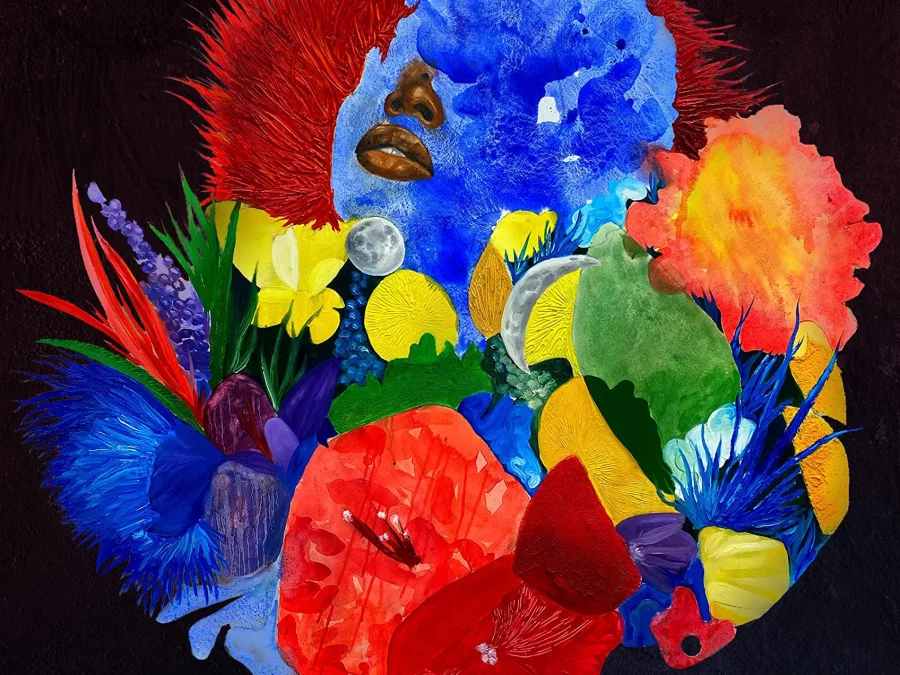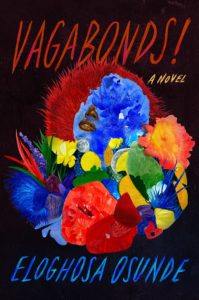Vagabonds! is a startlingly original Nigerian debut novel that introduces us to a compelling cast of marginalised characters struggling to survive and thrive on the chaotic streets of Lagos.
There’s no single narrative in Vagabonds!, the debut novel by Nigerian writer Eloghosa Osunde. There’s no hero, no standard plot arc. The novel is like life: teeming, diverse, sometimes chaotic and shapeless, and yet its disparate strands are linked and bound together in ways that are not obvious at first.
It’s a novel set mostly in Lagos, and the city itself is a character in the novel too, a mythical, godlike character who stands above everything and everyone—except the single all-powerful entity who is above even the city itself: money.
Vagabonds! is structured as a series of stories that seem at first unconnected. These stories introduce us to a large and diverse set of characters, mostly marginalised people who are struggling to survive and thrive in the competitive, cut-and-thrust, often callous but sometimes surprisingly connected world of the city.
The stories effortlessly blend myth and reality, the living and the dead. Ghosts and shapeshifters are a fact of life, and characters pass constantly between worlds. All of this happens not just for literary high-jinks, but for a very important reason that Daisy, a lesbian woman in one of the stories, explains:
“We’re ghosts because we have to be, because our lives depend on passing and being passed by. But we’re ghosts who see other ghosts often, who hold them and hug them and fuck them, too, in our bedrooms, doors closed.”
The book opens with a set of definitions of the word “vagabond”. Some will be familiar to international readers, but others will not—at least, they were new to me. In Nigeria, the word refers to people who are gay, lesbian or transgender. Being a vagabond is illegal. Vagabonds must constantly change shape and form in order to survive.
You could read this as a short story collection, and it would still work because the individual stories are so strong and beautifully written. But it’s also more than that—as you read further into the book, you start to see characters recurring, connections forming. The book never coalesces into anything like a traditional novel, but still, those connections do form a story of sorts, a beautiful and horrifying picture of a city and the people who live at its margins.
Vagabonds are made not just from gender or sexual identity but also from poverty. Often, they run into harshness and cruelty at the hands of the rich, the privileged, the ones whose loves and lives are legal. They must hide who they are, go mute, face violence.
They often find solace in each other, but sometimes they find unexpected kindness and understanding from others too. There’s the beautiful story of Gold and her mother:
“Gold was only still here, alive, because she had a mother who asked, ‘What do you want for yourself, my child?’ and listened when she answered, after all. A mother who saw how un-at-home Gold was in her old body, asked, ‘What is your real name?’ and then believed Gold immediately. Life is different with a mother who listens and believes; a parent who welcomes you when you take yourself home to meet her for the first time; who lets a dead name go quietly into the ground.”
Gold’s mother may accept who she is, but the wider society doesn’t. Gold, like so many other vagabonds, is illegal, facing fourteen years in jail for being who she is. But unlike so many of the others, she has her mother alongside her, supporting her. As Gold’s best friend F. says, “But it shouldn’t be rare. Us being loved shouldn’t be rare. What you felt today, is how it should be.”
In case you haven’t guessed yet, I loved this book! At first, I thought the fractured nature of the narrative might make it hard to read, but it wasn’t. Each story was compelling on its own, and they all add up to something much more.
There’s a story in Vagabonds! in which a group of fairygodgirls put a book in the hands of the person who needs it at that particular moment in their lives. This book could be exactly that book for some readers, the kind of book that tells them, in Eloghosa Osunde’s words, “You will be strange, but you won’t be strange alone.” Even if it’s not that book for you, it will still be well worth reading. It’s startlingly original, full of energy and life, shocking in some places and inspiring in others.
Have you read Vagabonds! yet? Do you think you will? Let me know in the comments. And, if you’re interested, here are some of my other reviews of Nigerian literary fiction:
- Lote by Shola van Reinhold
- The Fishermen by Chigozi Obioma
- Like a Mule Bringing Ice Cream to the Sun by Sarah Ladipo Manyika





There are 5 comments
This sounds amazing. I really look forward to reading this someday.
It is indeed. These fragmented novels made up of semi-connected stories don’t always work for me, but this one really did. And I forgot to say in my review how much I love that cover. Made me sorry I’d read the ebook version!
Oh this sounds really good! My library has it on order so who knows how long it will be before it’s available to checkout but I put it on my list so I won’t forget it 🙂
Yes, it’s wonderful! Hope the library gets a copy soon 🙂
Heyy can you send me the e book of vagabonds! @emmanuellaototoO1@gmail.com